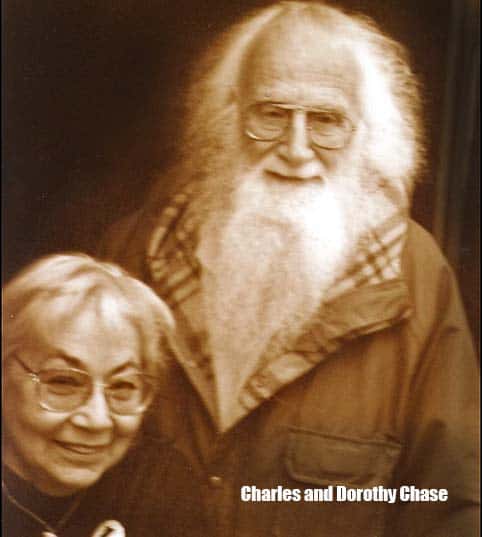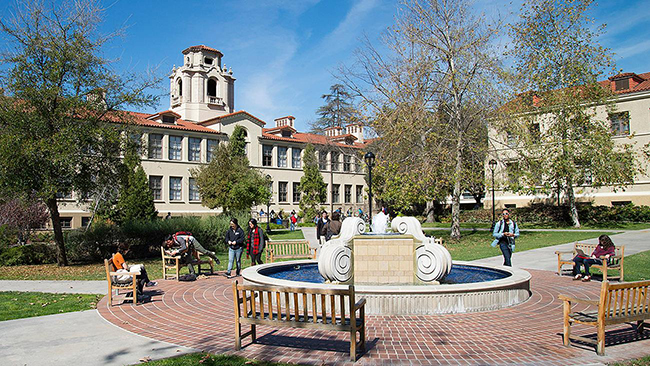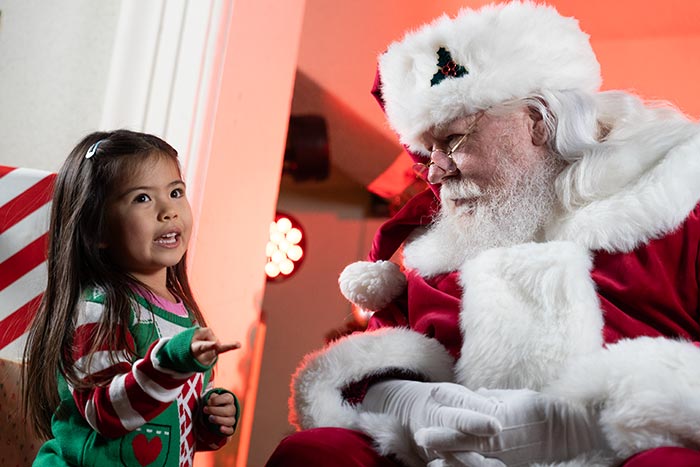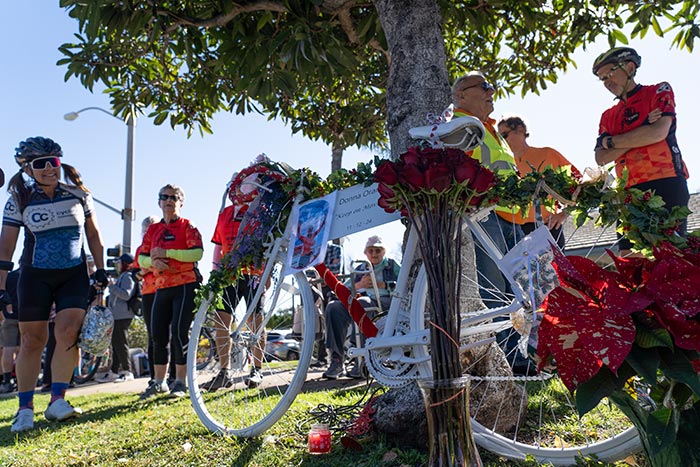Claremont’s beloved music hub The Folk Music Center turns 60

In 1958, Elvis was just beginning to make bad movies, suburbs were sprouting up across Southern California, and folk music was booming.
Amidst this backdrop, Charles and Dorothy Chase opened The Folk Music Center in Claremont, and next week the beloved music and social hub celebrates the 60th anniversary of a store that has become so much more than a place to buy a guitar.
“It is gratifying,” said the Chase’s daughter, Ellen Harper, who runs The Folk today. “It makes me think about all the people that my mother taught, who went out and taught other people, and the ripple effect from that little store in Southern California, how it just rippled out so far, to people that still play, to people that use their guitar in the classroom, to people that just enjoy playing, and people that became performers. It’s a big impact.”
Count renowned musician Chris Darrow among the beneficiaries of the Chase’s wide-ranging largesse. The lifelong Claremont resident got his first guitar for Christmas in 1959, when he was 15. “The guitar came from a new store in Claremont called the Folk Music Center,” Mr. Darrow recalled. “It was a wonderful place to hang out and play music, and no one ever told you that you had to leave. The atmosphere was inviting and the Chase family, including Dot’s [Dorothy’s] father Gramps, were like a second family for a lot of us music enthusiasts.”
The family vibe has always run strong through the funky, rambling shop. These days the sounds of Ms. Harper’s grandchildren—the potential fourth generation Folk Music Center purveyors— are oftentimes heard amongst the guitars, banjos, kazoos, drums and dulcimers that line the walls and fill the nooks and high spaces inside the Yale Avenue institution.
Claremont’s David Lindley, well-known for his stringed instrument mastery with Jackson Browne, Dolly Parton, Curtis Mayfield and Warren Zevon, among many others, also had praise for The Folk. “Musicians from everywhere would come there,” he said. “There was [Santa Monica’s] McCabe’s, and a few others, but it was mainly the Claremont Folk Music Center. If you wanted something really good, rare or really high-end, older instruments, you would go the Claremont Folk Music Center.”
And while some of the Chase’s clientele and even their offspring have gone on to become household names—their grandson Ben Harper became a star on the artist side of the business, and now owns the store—the egalitarian nature of The Folk has been a boon for weekend pickers and pluckers as well.
“All those people they come in and say, ‘I remember buying my first guitar and your dad let me pay it off at $5 a month,’” Ms. Harper said. “And a lot of people were able to get a guitar in their hands that wouldn’t have been able to afford one.”
A six decade run is noteworthy for any business, but for a stand-alone brick-and-mortar music store it’s as rare as a Lloyd Loar mandolin. “I think so, and it’s still in the same family,” said Ms. Harper. “It is quite an accomplishment, and you’re right: the music business is fickle, and it certainly isn’t as easy as it used to be.”
Mom-and-pop music stores, which once dotted the landscape, are losing traction in increasing numbers, due primarily to market pressure by online retailers such as Amazon and large chains, most notably Guitar Center. The combined force of these giants has swallowed up smaller stores and forced others out of business by offering lower, volume discounted prices with which the independents can no longer compete.
As these stores closed, so too have the once plentiful distributors, who for decades sold a breadth of musical supplies—guitars, strings, harmonicas, amplifiers, drum sticks, etc.—to small, independent music outlets. Nowadays musicians can purchase their tools with a few clicks on their smartphone, often at prices equal to or better than brick-and-mortar stores.
“Initially eBay came along and the vintage [instrument] market changed somewhat,” Ms. Harper said. “But it didn’t change substantially, at least for us, until Amazon stepped into the music world.”
Another factor in the plight of many stand-alone music stores has been a steady uptick in real estate prices, which are inevitably passed on to retailers in the form of increased rents. But in what is a key factor in its longevity, The Folk dodges this potential bullet because it owns the building in which it operates.
Also helping things is the distinctiveness of many of its products. Guitars, banjos, mandolins and fiddles aren’t interchangeable. In fact, they’re all unique; Two instruments may have been made on the same day by the same builder, but will have subtle differences in tone and playability. They’re not widgets. They’re living, functional art.
“And that’s probably why we’re still there,” Ms. Harper said.
All told, Claremont is lucky to have what some might now consider a throwback of a music store in the heart of the Village.
“I hear time after time from the reps from the guitar companies, they’ll come in and talk about another small music store that’s gone,” Ms. Harper said. “It’s sad. It’s sad they’re gone. But I’m glad we’re still here.”
The reasons The Folk has survived for 60 years are myriad. From its modest beginnings to today, when music stores are predominantly glistening, cacophonous, corporate affairs, perhaps its secret weapon all along has been its stubbornly charming refusal to bend with the winds and whims of the market.
When customers walk in the door at The Folk Music Center they’ve entered equal parts guitar store, museum, social scene, academic hub and center of craftsmanship. It’s a decidedly low-key, no-pressure clubhouse. It’s a place you want to stay and talk about music, life and art. In other words, it’s the anti-Guitar Center.
“I feel like we’ve kind of become a center for folk music and for people that need to come in and talk about politics and talk about the times,” Ms. Harper said. “It has that connection with people, with community, with folk song societies, and that’s good. I hope we can perpetuate it.”
The Folk’s 60th anniversary is Saturday, November 10. Go to folkmusiccenter.com, email info@folkmusiccenter.com, or call (909) 624-2928 for more information.
—Mick Rhodes
mickrhodes@claremont-courier.com











0 Comments